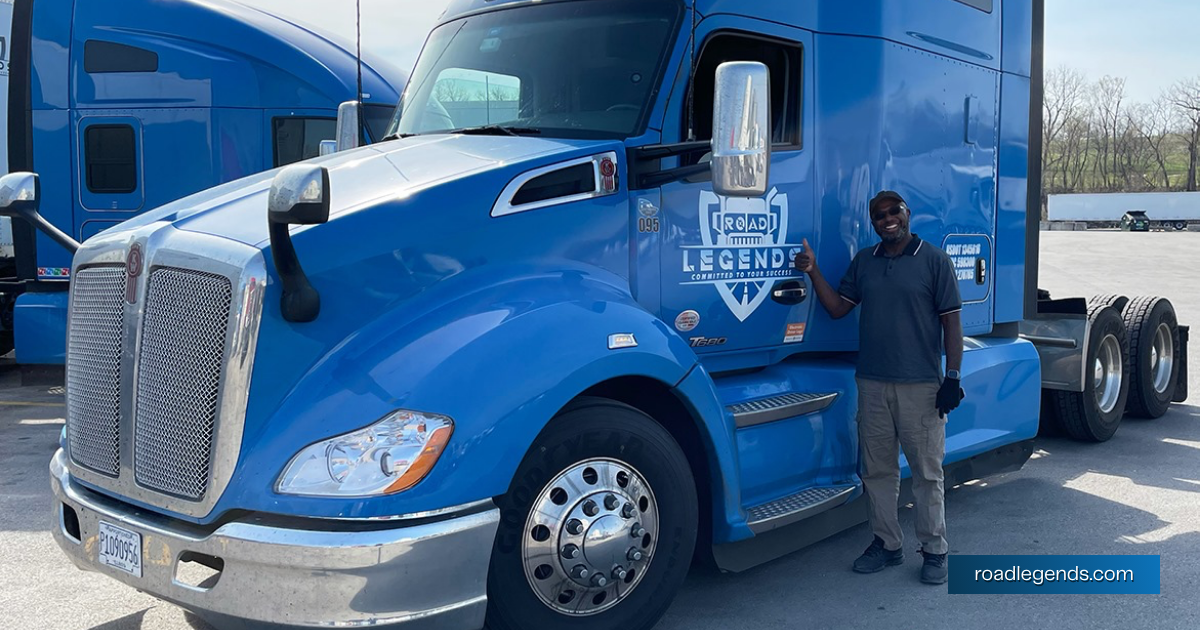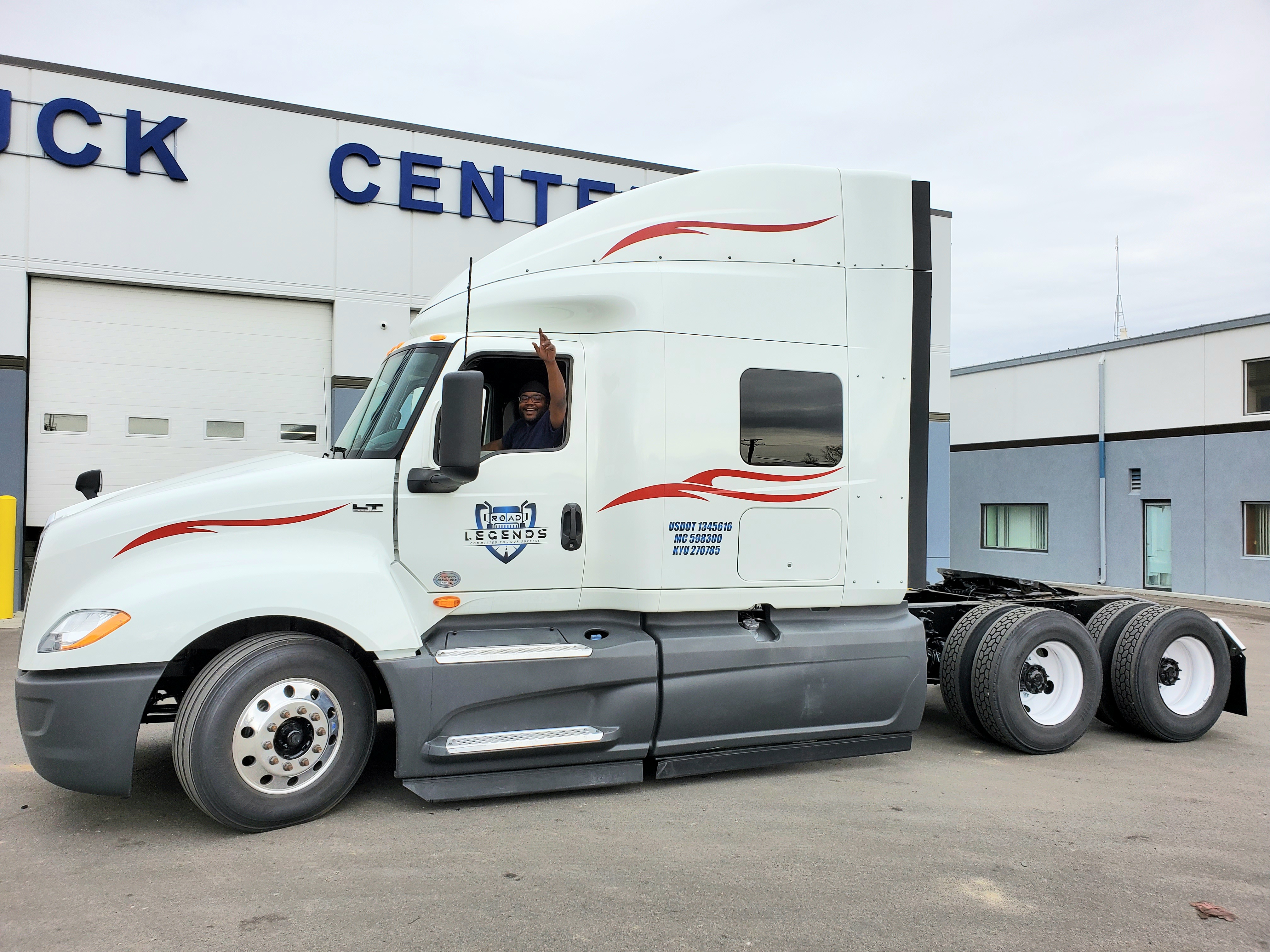
Owner Operator vs. Company Driver — Job Differences
If you’ve ever considered working as a trucker, your biggest concern would be: Is it better to work at a company or become an owner-operator? Even though the knowledge skill set is practically the same for each job, there is still a big difference between these two.
Let’s start off by giving you some basic definitions:
What is an Owner-Operator?
A truck driver who owns their own truck is called an owner-operator. This simply means that owner-operators are self-employed people with complete control over their jobs. They don't have to cope with forced dispatch as frequently either.
If you are in the owner-operator trucking business, you may be able to earn more money. You can also customize your truck to your liking. As a result, your truck is more likely to meet your expectations. However, because you are responsible for your truck parts, any costs or damage you incur are your responsibility.

James Washington
What is a company driver?
A company driver is employed by a company and drives a company-owned truck. If you are a company driver, you have less freedom, and less time off, and you don't get to choose your own jobs. It's also possible that your salary will be lower than that of an owner-operator.
However, if the truck requires maintenance at the end of the day, it will be done at the expense of the company. When you leave your truck at the terminal, you leave your problems behind. You may incur additional charges for commuting to work if you live far from the station. Your routes are determined by your employer, which may or may not be to your advantage.
Owner-operator vs. company driver
Now that you know the basics, you are probably wondering which one is better. It depends on what you are looking for, so one job might fit you better than the other one.
Expenses
Because no taxes will be deducted from an owner's paycheck, the owner-operator must set aside enough money to pay taxes. They should also have money set aside for repairs if the need arises. Owner-operators are responsible for their own health insurance, and they will not be compensated for any time off.
An owner-operator can claim a variety of valid costs on their tax return. It's critical to keep all receipts and sort them into categories of deductions. This paperwork should be meticulously maintained in order to be prepared for end-of-year filing.
If you are a company driver, your expenses will be related to food and showers. Some employers could provide a daily allowance for such expenses.
Most company drivers have the option of purchasing health insurance, and after a certain amount of time with the firm, they may be eligible for paid vacation time. The specifics are usually determined by the company.
Income
There are two popular ways for truck drivers to earn their salaries. They are compensated either by the mile or by a proportion of the load. You will most likely be paid by the mile as a company driver, though some companies now offer percentage pay.
However, the owner-operators' salary is usually higher, and they are often paid more than 88% of the load's value.
Since they must cover their expenses such as fuel, maintenance, and insurance, this rise in revenue is usually mitigated. Still, the owner-operator's salary might be dramatically enhanced as a seasoned truck driver. You'll be on the higher end of the range if you're diligent on the road, and you'll be on the lower end if you consistently turn downloads.
Keep in mind that owner-operators are accountable for their own business expenses, which are tax-deductible. All you have to do now is keep track of them.
Responsibility and ownership
For company drivers, the majority of the responsibilities, such as trucks, loads, insurance, and any essential maintenance, are handled by the company. When you work for a firm, you clock off at the end of the day, and the job is finished.
There's a lot more to think about in the owner-operator trucking business. They buy their own truck and are responsible for the equipment, insurance, and upkeep of their vehicle. Owner-operators are essentially self-employed individuals who have complete control over their operations. They should keep copies of the receipts, tax statements, profit and loss statements, maintenance records, insurance policies, and warranty documentation, among other things.
Flexibility
You don't have a lot of flexibility as a company driver. You can inform your employer of your choices, but that does not guarantee that they will follow through. Even if you despise traffic, there's not much you can do if you're assigned to a route with a lot of it. The company decides where you go. That is why it is crucial that you choose the best company for your needs.
On the other hand, you have the ability to accept or decline contracts as an owner-operator. You have complete control over your schedule and can choose the arrangements that work best for you.
In addition to having the choice to work more or less, you can also modify your truck to your taste. Owner-operators can add speakers, a mini-fridge, seat covers, and whatever else they think they need to their trucks. After all, your truck is your second home.
Job security
If you are a company driver, your company will want you out on the road as much as possible. Trucks that aren't moving aren't making any money. In general, you'll have fewer vacation days and spend more time on the road.
The owner-operator trucking business allows you to be a little pickier with the jobs. You are, however, still reliant on your hired company to provide you with those jobs. As a result, mind you, this will affect your salary.
Other factors to consider:
Everyone is unique. When determining whether to become an owner-operator or a company driver, you should also examine your own and your family's needs. Consider the following points:
- Finances: despite the modest start-up costs, new owner-operators require a good credit score and some financial buffer. Your costs will begin straight away, and developing a reliable income stream may take some time. However, the owner-operators’ salary is higher than that of a company driver.
- Family: company drivers are frequently asked to work long shifts and spend a significant amount of time away from their families. You have more control over your owner-operator trucking.
- Experience: it's beneficial to gain experience as a company driver before venturing out on your own if you're a new truck driver. You can learn about the industry from the ground up, gaining essential knowledge along the way.
- Safety: when comparing the overall safety of an owner-operator to that of a business driver, the owner-operator may have an advantage. Companies frequently save on specific items, such as tires, and purchase lower-quality rubber in bulk for their fleet trucks.

Patrick Hunter
To sum up
Are you just starting out in the trucking business? Then you should probably look for a position as a company driver. This might help you avoid some of the difficulties that come with owning and operating a business.
However, you might consider becoming an owner-operator if you have a lot of expertise, enjoy responsibility and difficulties, and prefer greater freedom. As an owner-operator, you can earn a lot more money if you drive safely and maintain your equipment properly. You can also take vacations anytime you like. Fortunately for you, we at Road Legends are here to help out with finding owner-operator trucking jobs. We are a family firm dedicated to protecting the interests of our owner-operators, so you can rest assured that you are entering into a package designed to help you succeed.
Feel free to apply at https://www.roadlegends.com, and to call us for additional information at 773-377-8721.

The “Hidden” Paycheck: How Fuel & Maintenance Support Shape Real Net Pay
Learn how fuel costs, maintenance planning, and equipment efficiency impact real net pay in trucking and why the “hidden paycheck” matters in lease purchase programs.

Percentage vs. CPM: How to Choose the Right Pay Plan at Road Legends
Learn the difference between percentage pay and CPM in trucking. Understand break-even points, income stability, and how to choose the right pay plan for your driving style.

What Is a Walk-Away Lease in Trucking? The Advantage Most Drivers Miss
Learn what a walk-away lease in trucking is, how it differs from traditional lease purchase programs, and why many CDL-A drivers choose flexibility over long-term debt.